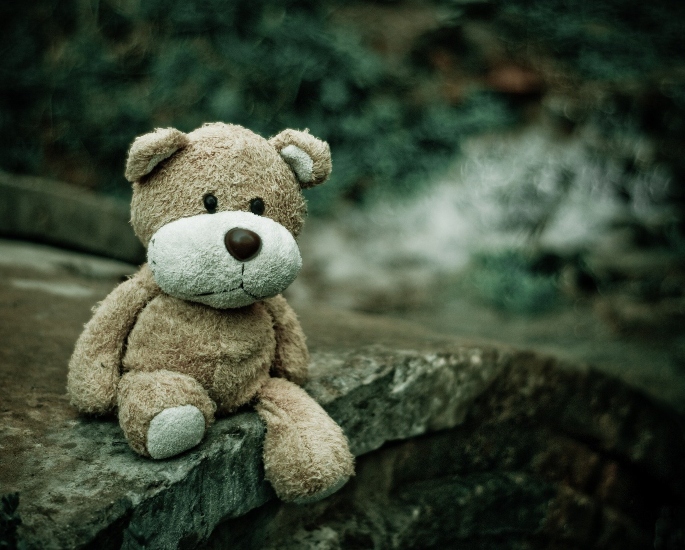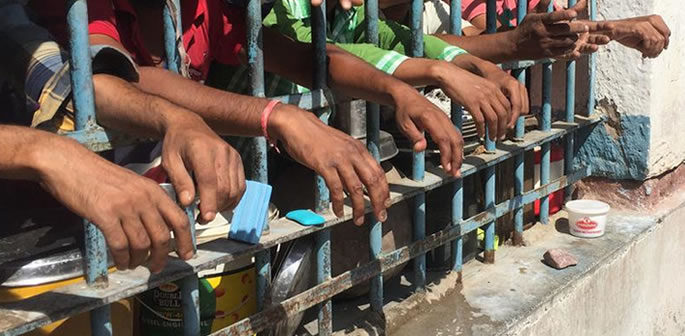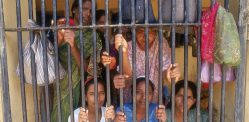"Unfortunate, forgotten specimens of humanity."
Indian lawyer, Abhinav Sekhri, said: “Prisons are not sites of rehabilitation, but instead serve as warehouses for the innocent.”
These allegations have a tint of truthfulness upon them, as sources have shown that at least 68% of prisoners in India have not yet been convicted of any crime.
The definition of an undertrial is where a person appears in a court of law because they have been accused of committing a crime.
The number of undertrial prisoners is very high because most of the prisoners either belong to one of three categories.
These consist of outcasted nomadic tribes, untouchable castes who are required to do ‘dirty jobs’, or poor, illiterate people who engage in agriculture.
The law system in India follows a dilution of two opposite principles, the first one being innocent until proven guilty and the second being guilty until proven innocent.
However, when prisoners belong to one of the categories mentioned earlier, they are often so poor that if they are trialled with the presumption of guilt, they can often never afford to pay bail.
Even if the benefit of the doubt is given, and undertrials are innocent until proven guilty “they are often subjected to psychological and physical torture during detention and exposed to subhuman living conditions and prison violence.”
When the Supreme Court itself told that “the high prevalence of undertrials in jails is a crying shame on the judicial system”, it was proved that caging people for such an extensive time was inhuman.
This is particularly true because undertrials often lose ties with their families and communities, and “prison time attaches them social stigma as individuals and as community members.”
But the greatest problem confronted is the undertrials’ lack of awareness in regards to their “rights, their lack of access of legal aid, financial resources and the limited ability to communicate with lawyers.”
Thus, they are inadequately prepared to defend themselves in a court of law.
However, numerous cases have proven that it is not the cage with iron bars that truly trap these people.
They get trapped when they become slaves of the heart that closed on them and of the loneliness of their minds.
Stripped of Youth

According to the Supreme Court, “in the dark cells of our prisons there are large numbers of men and women who are waiting patiently, impatiently perhaps, but in vain, for justice.”
Impatiently waiting for justice was an innocent nineteen-year-old boy who became a prisoner of the system for 23 years after being accused of terror crimes in relation to numerous blasts.
And nobody apologised for it. “The least the judges could have done was expressing some sympathy or remorse”, but “the system has not expressed regret.”
Mohammad Nisarudin spent more of his life in jail than as a free man and no recompense will ever make up for that. Over time, his “sorrow turned to anger.”
Mohammad expressed what happened to his life:
“23 years of my life are gone to prove my innocence. Everyone has gone ahead in life and I am left far behind. Most of my friends have gone abroad and those here don’t relate to me anymore.
“How can I be compensated for all the years lost? Can I ever be compensated in any manner?”
Mohammad’s family explained that even if they did appeal for compensation, “we do not have any resources to fight another legal battle.”
He continued saying:
“It takes a lot of money to do so and we lost all that to bring my brother home.
“Even if I seek action against those who falsely implicated him, half of them are dead. What is the way forward then?”
The only ‘compensation’ this victim of the system has ever received, is the hatred and distrust of his own community towards him and his family.
Mr Zahiruddin, Mohammad’s brother expressed:
“Not only my brother, my entire family is a victim of the judiciary.”
There is a stigma attached to marrying into the family because people fear Mohammad will be correlated with other terror crimes in the future.
Mr Zahirudin remains hopeful to help his brother settle down and put the fallen pieces of his life back together. He said about Mohammad:
“He is also entitled to be happy, just like you and me.”
Mohammad was a victim of the legal system that was meant to protect him. However, his brother plans to help him return to normality.
Prisoners like Mohammad Nisarudin are often termed as “unfortunate, forgotten specimens of humanity.” For them, “the law has become an instrument of injustice.”
The prisoners remain “the helpless victims of the callousness of the legal and judicial system.”
It seems that Indian jails have not progressed. The issue of a fair trial remains and over 300,000 people are jailed in Indian prisons without being found guilty via the court system.
There are more people in jail without trial than actual convicts.
The difference between rich and poor is clear. Rich and influential people are promptly able to obtain bail whilst the majority are left to languish in jail.
There are nearly 21 million criminal cases pending for 10 years, 300,000 cases pending for 20 years, and 54,886 cases pending for more than 30 years.
In 2017, without any given conviction, 77,000 people were imprisoned in Indian prisons for more than 1 year, whilst 4,876 people were forsaken there for more than five years.
However, the stigma in Indian society persists. The innocent Indians who are freed after spending years in jails for crimes they have never committed are no different from actual convicted felons.
In this way, justice is not obtained even upon freedom.
Children Lost

Entire families are impacted by innocent people being convicted. In some cases, the damage done to innocent families is irreparable.
And this is probably true, particularly for two parents who spent 5 years in jail for a crime they didn’t commit. When they were finally released from that nightmare, their children were missing.
Narendra and Najma Singh were accused of the murder of a five-year-old boy in 2015 and spent five years in jail because of the negligence of the investigation officer and the sub-inspector.
The “prosecution was dependent on circumstantial evidence in the absence of any factual one.”
Therefore, the court “recommended that the case be re-investigated on the basis of available evidence” to find the real culprit after the innocence of the two parents came to light.
The court added: “It is unfortunate that innocent people have spent five years behind bars and the main accused is still free.”
However, the children who were a boy of five and a girl of three “were sent to ‘some orphanage’ in the absence of their parents.”
Now no one knows what happened to the children.
The distraught father of the missing children said:
“What was our children’s fault? They had to live like orphans. My son Ajeet and daughter Anju were so small when the police arrested us for murder.”
The parents “went to the high court, but it could not be taken further due to their inability to afford the expenses.” As a consequence, the case has not yet been solved.
The government is responsible for finding these children and compensating the innocent parents who were jailed. Whether there are any consequences is another matter.
Unfortunately, people who are wrongfully convicted or not even trialled adequately are put in jeopardy because of an unlawful legal system, which has yet to be improved to provide the needed justice.
Undertrials and innocents are caged in small rooms, where the door is made of bars and the light barely passes through their window – if they have one.
They have to be heard and be given a chance, because anyone, whether in the South-Asian subcontinent or elsewhere, should know their proper rights in order to defend themselves in the court of law.
Mahatma Gandhi said: “India is one vast prison with high walls of suppression clothing her mind and her body.”
But day-by-day, year-by-year, the walls are starting to come down, and hopefully, the quote above will become a bad memory from which the world has learned.






























































